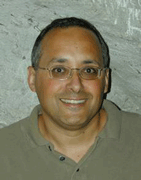GlobalSIP 2013 Symposium on:
Energy Harvesting and Green Wireless Communications
[Download the PDF Call for Papers]
Wireless communication networks composed of devices that can harvest energy from nature represent the green future of wireless. Utilizing harvested ambient energy for operation of wireless networks improves the environmental impact of wireless devices in the global scale, while extending the network lifetime indefinitely and making the devices truly mobile in the network. Energy harvesting brings new dimensions to system design in the form of randomness and intermittency of available energy, as well as additional system issues to be concerned about such as energy storage capacity and processing complexity, all of which call for novel signal and information processing techniques. Additionally, deployment of energy harvesting wireless communication networks and their integration to the wireless broadband access structure will require effective resource and interference management, cooperation and collaboration between energy harvesting nodes and battery powered devices/access points/small cell base stations, making signal processing algorithms to accomplish these goals invaluable.The goal of this proposed workshop will be to bring together researchers in energy harvesting and wireless communications, and provide a forum for dissemination of novel research results.
Submissions of at most 4 pages in two-column IEEE format are welcome on topics including:
- Physical layer design for energy harvesting communications
- Signal processing for energy harvesting communication
- Information theory of energy harvesting communications
- Network theoretic approaches for energy harvesting communications
- Energy and message cooperation
- Energy efficient MIMO
- Design of green wireless communication systems with hybrid energy sources
- Heterogeneous green wireless communications systems
- Small cell networks and green communications
Keynote Speakers

Roy Yates, Wireless Information Networks Laboratory (WINLAB), Rutgers University, Energy Harvesting Receivers: Models and Policies
When receivers rely on stochastic energy harvesting, the processes of sampling and decoding may be interrupted by power outages that limit the reliable communication rate. To model the receiver, we decompose the processing tasks in two parts: first is sampling or Analog-to-Digital Conversion (ADC) which includes all RF front-end processing, and second is decoding. We propose a model in which, for a given code rate, channel capacity, and battery size, the transmit packet timing and receiver sampling policy are optimized. Based on the relative energy costs of sampling and decoding, we then characterize the maximum reliable communication rate over the choice of code rate and sampling rate and we identify optimal receiver policies.
Roy Yates received the B.S.E. degree in 1983 from Princeton University and the S.M. and Ph.D. degrees in 1986 and 1990 from M.I.T., all in Electrical Engineering. Since 1990, he has been with the Wireless Information Networks Laboratory (WINLAB) and the ECE department at Rutgers University where he is currently a Distinguished Professor of ECE and Associate Director of WINLAB. In 1999-2000, he served as Director of WINLAB. An IEEE Fellow in 2011, Dr. Yates is a former associate editor of the IEEE Journal on Selected Areas of Communication Series in Wireless Communication and also a past Associate Editor for Communication Networks of the IEEE Transactions on Information Theory. He is an author of two editions of the text Probability and Stochastic Processes: A Friendly Introduction for Electrical and Computer Engineers published by John Wiley and Sons. Dr. Yates was a co-recipient of the Marconi Paper Prize for the best paper in the IEEE Transactions in Wireless Communication for 2002, and was awarded the Rutgers University Scholar-Teacher Award in 2011. His research interests include wireless resource allocation, information status updating, and spectrum regulation.

Gil Zussman, Columbia University, Energy Harvesting Active Networked Tags (EnHANTs) — Measurements, Algorithms, and Prototyping
We discuss a new type of wireless devices in the domain between RFIDs and sensor networks – Energy Harvesting Active Networked Tags (EnHANTs - http://enhants.ee.columbia.edu). Future EnHANTs will be small, flexible, and self-powered devices that can be attached to objects that are traditionally not networked (e.g., books, toys, clothing), thereby providing the infrastructure for various Internet-of-Things tracking applications. We describe the paradigm shifts associated with the underlying enabling technologies. Then, we present the results of an indoor light energy measurement campaign and of a kinetic energy study that have been conducted in order to characterize the energy availability for EnHANTs. We discuss low complexity energy-harvesting-adaptive algorithms which aim to allocate resources uniformly in respect to time and to determine energy and data rate allocations for a node and for a link. Finally, we present the design considerations for the EnHANT prototypes which harvest indoor light energy using custom organic solar cells, communicate and form multihop networks using ultralow-power Ultra-Wideband Impulse Radio (UWB-IR) transceivers, and adapt their communications and networking patterns to the energy harvesting and battery states. We also describe a small scale EnHANTs testbed that uniquely allows evaluating different algorithms with trace-based light energy inputs and discuss experimental results.
Based on joint works with A. Bernstein, M. Gorlatova, R. Margolies, A. Wallwater, and the groups of P. Kinget, J. Kymissis, D. Rubenstein, and L. Carloni (Columbia).
Gil Zussman received the B.Sc. degree in Industrial Engineering and Management and the B.A. degree in Economics (both summa cum laude) from the Technion – Israel Institute of Technology in 1995. He received the M.Sc. degree (summa cum laude) in Operations Research from Tel-Aviv University in 1999 and the Ph.D. degree in Electrical Engineering from the Technion – Israel Institute of Technology in 2004. Between 1995 and 1998, he served as an engineer in the Israel Defense Forces. Between 2004 and 2007 he was a Postdoctoral Associate in LIDS and CNRG at MIT.
In 2008 he joined the faculty of the Department of Electrical Engineering at Columbia University where he is now an Associate Professor. His research interests are in the area of networking, and in particular in the areas of wireless, mobile, and resilient networks. He has been an editor of IEEE Transactions on Wireless Communications and Ad Hoc Networks, the Technical Program Committee (TPC) co-chair of IFIP Performance 2011, and a member of a number of TPCs (including the INFOCOM, MobiCom, SIGMETRICS, and MobiHoc committees).
Gil received the Knesset (Israeli Parliament) award for distinguished students, the Marie Curie Outgoing International Fellowship, the Fulbright Fellowship, the DTRA Young Investigator Award, and the NSF CAREER Award. He was the PI of a team that won the 1st place in the 2009 Vodafone Foundation Wireless Innovation Project competition. He is a co-recipient of five best paper awards, including the ACM SIGMETRICS / IFIP Performance’06 Best Paper Award and the 2011 IEEE Communications Society Award for Advances in Communication.
Paper Submission
Submit papers of at most 4 pages in two-column IEEE format through the GlobalSIP website at http://www.ieeeglobalsip.org/Papers.asp. All papers (contributed and invited) will be presented as posters.
Important Dates
| Paper Submission Deadline | June 15, 2013 |
| Review Results Announce | July 30, 2013 |
| Camera-Ready Papers Due | September 7, 2013 |
Organizing Committee
Technical Program Committee
Wei Chen, Tsinghua University, China
Shuguang Cui, Texas A&M University, USA
David Gesbert, EUROCOM, France
Pulkit Grover, Carnegie Mellon University, USA
Cenk Gursoy, Syracuse University, USA
Kaibin Huang, Hong Kong Polytechnic University, Hong Kong
Emre Koksal, Ohio State University, USA
Marios Kountouris, SUPELEC, France
T.J. Lim, National University of Singapore
Chandra Murthy, Indian Institute of Science, India
Robert Schober, Friedrich-Alexander University of Erlangen-Nuremberg, Germany
Osvaldo Simeone, New Jersey Institute of Technology, USA
Rahul Vaze, Tata Institute of Fundamental Research, India
Jinsong Wu, Bell Laboratories, China
Jing Yang, University of Arkansas, USA
Roy Yates, Rutgers University, USA
Rui Zhang, National University of Singapore